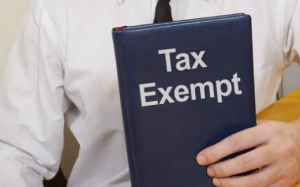Table of Contents
There are a few things to know about taxes if you have dual citizenship in the US and UK. For one, you’ll need to file taxes in both countries. You’ll also need to be sure to comply with the tax laws of both countries, as there are some differences between them. For example, the US has a tax on worldwide income, while the UK only taxes income earned within the UK.
Much like the US/UK Dual Citizenship, there are differences when you apply for citizenship. The US has the Civics test while the UK has the Life in the UK test. This website will come in handy to prepare for the UK citizenship test without requiring any account.
Today, we will take a look at the things you need to know about US/UK Dual Citizenship Taxes.
The Importance of Declaring All Sources of Income

If you are a US citizen, you are familiar with the council tax situation in your country. You may even be familiar with the term “dual citizenship” itself. But do you know what it means? Or more importantly, how do you know if you should claim it?
What is a dual citizen? A dual citizen is a person who has allegiance to two countries. They are therefore not subject to the one-country income tax rule. Instead, they must calculate their income tax based on both their international income and any income they have from within their own country.
There are numerous benefits to being a dual citizen, but the main one is that you are – legally speaking – half a person. This means you get half of the benefits of being an American.
For example, someone born in the UK is a dual citizen of the US and UK. The US taxes him/her at 35% while the UK taxes him/her at 20%. Thus, UK citizens are paying less than half the rate paid by US citizens.
The fact that you are a dual citizen does not automatically make you a tax expert. Even people born in the US are required to report their citizenship status to the IRS. If you are required to file a tax return, you will likely find yourself overwhelmed by all the different tax rules and regulations.
USA and UK Dual Citizenship Tax systems
“Are dual citizens in the United Kingdom required to submit US taxation?” is the most often discussed topic. Absolutely, even if one is a dual citizen of the US and the UK, he/she is mandated to submit US taxes if he/she is a citizen or legal resident of the United States.
The United States is one of only two nations on the planet that charges citizens with taxes rather than residents. That implies that if you are a citizen of the United States, you must pay the tax traps regardless of where you reside at the moment. This is applicable even if you make no money in the United States.
You ought to be aware that the UK tax calendar differs from the US tax season. The tax year in the United States begins on January 1 and concludes on December 31. Whereas the tax period in the United Kingdom begins on April 6 and concludes on April 5 of the subsequent year. Your UK tax payments are levied on October 31 if you want to pay them by paper and postage. You have till January 31 to file assuming you want to file online.
However, just because someone has a U.S. tax liability doesn’t imply that they will owe anything—the US/UK taxation agreements, the overseas tax rebate, and the foreign employment income exemption are all instruments the US gives to alleviate the tax liability on dual nationals.
Nevertheless, the taxation treaty’s retirement clause does not really apply to every one of your U.K. holdings. Some dual nationals from the United States and the United Kingdom, for instance, have opened an Individual Savings Account (ISA). These transactions do not fall under the tax exemption in the United States, irrespective of the commodities they include.
The Foreign Earned Income Exclusion for dual nationals of the United States and the United Kingdom


The Foreign Earned Income Exclusion (FEIE) is by far the most widely utilized technique for lowering dual citizen taxes in the United States and the United Kingdom. It lowers (or totally eliminates) your U.S. tax liability by excluding your abroad employment income from your taxable income. In 2020, you may be able to deduct up to $107,600 in overseas employment income if you are approved.
The Tax Treaty Between the United States and the United Kingdom
Upwards of 50 nations throughout the globe have signed taxation agreements with the United States. They define what total revenue is chargeable, which affects if you are eligible for a tax exemption, exclusion, or a reduction in taxes.
The taxation agreements between the United Kingdom and the United States is no exception, with advantages for dual nationals as well as Americans living in the Uk. It really covers greater territory than previous accords. Consider, for instance, your retirement savings.
According to the present treaties, you can exclude the money you invest into your UK retirement account from your US earnings, much like a local IRA or 401(k) investment. That benefit is not available to all American expats across the world.
The Difference Between Tax-Exempt and Tax-Deferred Accounts


You may be familiar with the term “dual citizenship” if you’ve ever considered moving to live and work in another country. In some cases, people even have two passports or two-state residency amounts. The idea of having dual citizenship is not new to tax situations.
For example, US citizens had tax-deferred accounts called “compatriots” in Switzerland until subparagraph 743(h) of the tax code was repealed in June 2013. According to this section, US citizens and residents were allowed to open accounts in Swiss banks and maintain their status as “compatriots”.
The definition of a “compatriot” is a person who has dual citizenship. That is, they hold both a US passport and a UK passport. The rules regarding the taxes based on dual citizenship are complicated, and the line between what is taxable and what is not can be blurred. This article will help you understand what constitutes taxability as well as how to calculate your taxes when you are simultaneously a US and UK citizen.
In general, it’s best to consult with a tax professional if you have dual citizenship, as they can help you navigate the complexities of filing taxes in two countries.






































